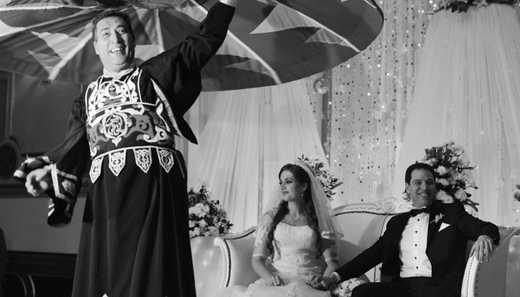5 Things I Learned Speaking Arabic At An Egyptian Wedding
 Written byEric Schenck
Written byEric Schenck- Read time9 mins
- Comments1

In May of this year, I went to an Egyptian wedding.
It was a German friend that I had played Frisbee with in Cairo. He was getting married to his Egyptian girlfriend of two years.
In fairness, this means it was only a “half Egyptian wedding.”
Still, the overall vibe was definitely not German.
I had attempted an Egyptian Arabic immersion project before this trip to Cairo, and even though I technically failed, it was definitely enough to get me ready. I had previously lived in Cairo for three years, and this wedding was one of my major tests to see if I had forgotten my hard-won language skills.
Spoiler: I hadn’t.
The wedding was awesome, and throughout the night, I spoke a ton of Arabic with hardly any problems.
Here are five takeaways from my experience.
Use them as you see fit in your own Arabic language learning journey.
1. Egyptians are generally surprised when a foreigner speaks Arabic
The overall disbelief of a foreigner speaking Arabic was kind of something I had forgotten about.
I’d walk up to an Egyptian at the wedding and strike up a conversation, and inevitably, there would be a bit of shock.
I really don’t look Egyptian, and being one of the few non-Egyptians there made me stick out even more.
Of course, speaking Arabic for me wasn’t that big of a deal. I had done it for three years in college (Standard Arabic, which didn’t really help a lot), and had lived in Cairo for three years.
I also still keep in contact with quite a few Egyptians, and we chat frequently over WhatsApp and Skype.
Speaking Egyptian Arabic wasn’t weird for me.
But the wedding made me realize something important: it’s weird for them.
And that’s a valuable lesson that I think is important to learn.
The fact is, some languages are a bit more “strange” for non-native speakers to speak.
If you speak a dialect of Arabic, it’s almost guaranteed: it’s going to be a bit strange for non-native speakers the first time you talk to them.
But strange in a good way.
Not confused, but more like… pleasantly surprised.
You, as a non-native speaker of Arabic, are a rarity.
Give yourself credit, accept any confusion regarding your language skills, and keep on talking.
Any (probably good-hearted) laughter or dreaded “switches to English” aren’t because your Arabic isn’t good.
Much more likely, you’re just a weirdo for being one of the few foreigners that can actually hold a conversation in Egyptian Arabic.
And how cool is that?